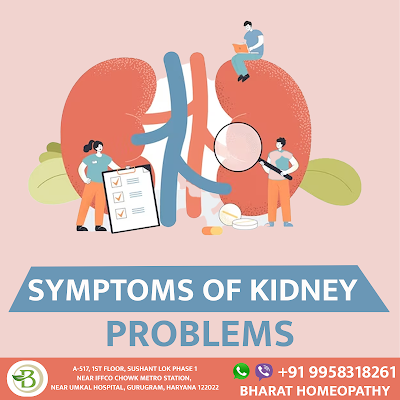Kidney Failure: Causes, Symptoms, and Treatment Options
Kidney health is an essential element of overall health, and being aware of kidney failure symptoms is essential to intervene early. Kidney problems are commonly caused by chronic kidney disease (CKD), a condition that can present subtle symptoms that, if not addressed, could lead to serious complications. Knowing the symptoms of kidney failure and kidney issues, as well as the significance of kidney function tests, can help individuals make proactive efforts to maintain good health in the kidneys.
The signs for Kidney Failure:
Kidney failure, which is characterized by an increasing loss of kidney function, is manifested in a variety of signs. Being aware of the kidney failure symptoms can be crucial to obtaining urgent medical care.
Common symptoms of kidney failure are:
Weakness and fatigue: Anaemia is a condition in which the body is deficient in red blood cells to supply oxygen, typically causing those suffering from kidney failure to feel tired and weak throughout the day.
Edema or swelling is a frequent sign of kidney failure. When the kidneys aren't able to eliminate excessive sodium and fluid from the body, in this case, the result is fluid retention.
The changes in urine: Kidney disorders can lead to visible changes in the patterns of urine. It could be a case of increased frequency, particularly at night, foamy urine, or urine that appears dark or has an unpleasant odor.
Problems with Concentration: Inadequate kidney function can impact the brain, causing difficulties in concentration and mental fogginess. It is usually caused by electrolyte imbalances.
The signs of Kidney Problems:
In addition to the above indicators of kidney failure, there are other general signs that suggest the presence of kidney issues. These symptoms of kidney failure could serve as early warning signs that prompt people to seek out medical assistance:
A high level of blood pressure A steady increase in blood pressure can be an indication of kidney disease. Regulation of blood pressure is heavily affected by kidneys, and hypertension may be a result of kidney disease.
Back Pain: Pain in the area of the kidneys that is situated on the opposite side of the spine could be an indication of kidney issues. However, it's important to remember that pain in the kidneys is usually not serious and could be minor aches.
Fluid Retention: Swelling of the ankles, legs, or face could result from the kidneys' inability to keep an equilibrium in the fluid levels of your body.
The Kidney Function Test, as well as the Diagnosis
To rule out or confirm kidney issues, medical professionals frequently suggest kidney function tests. These tests evaluate the kidneys' capacity to eliminate any waste in the blood.
Common tests are:
It is also known as the Blood Urea Nitrogen (BUN) Test. The test is a test that measures the amount of nitrogen in the blood, which indicates how the kidneys are working.
Creatinine Testing: High creatinine levels indicate a problem with kidney function since creatinine is a waste byproduct that the kidneys must get rid of.
Glomerular Filtration Ratio (GFR) Test The test gives an accurate measurement of kidney function by measuring the kidneys' blood filtering rate.
Chronic Kidney Disease and Kidney Infection symptoms:
If not treated, chronic kidney disease (CKD) is a condition that gets worse with time and could lead to kidney failure. Being aware of the signs and appointing a doctor swiftly to treat the symptoms is essential.
In addition, kidney infections, which are typically caused by bacteria that enter through the urinary tract, may cause kidney issues to worsen.
The signs of kidney infection include:
Chills and fever. Acute infections can trigger kidney infection symptoms that affect the entire system, which include chills and fever that indicate a more serious problem.
Urinary pain: A burning sensation or pain during urinary frequency is a common sign of kidney infection.
Frequent Urination: People suffering from kidney problems may feel the sudden desire to urinate regularly.
Conclusion:
Recognizing the symptoms of kidney failure, kidney failure, and the necessity of regularly scheduled kidney function tests is vital to ensure general health. For those suffering from kidney problems, early detection and kidney treatment by homeopathy can dramatically improve the outcome. It is crucial to focus on the health of your kidneys through an active lifestyle, regular medical checks, and prompt examination of any symptoms or signs that could indicate kidney issues.




Comments
Post a Comment